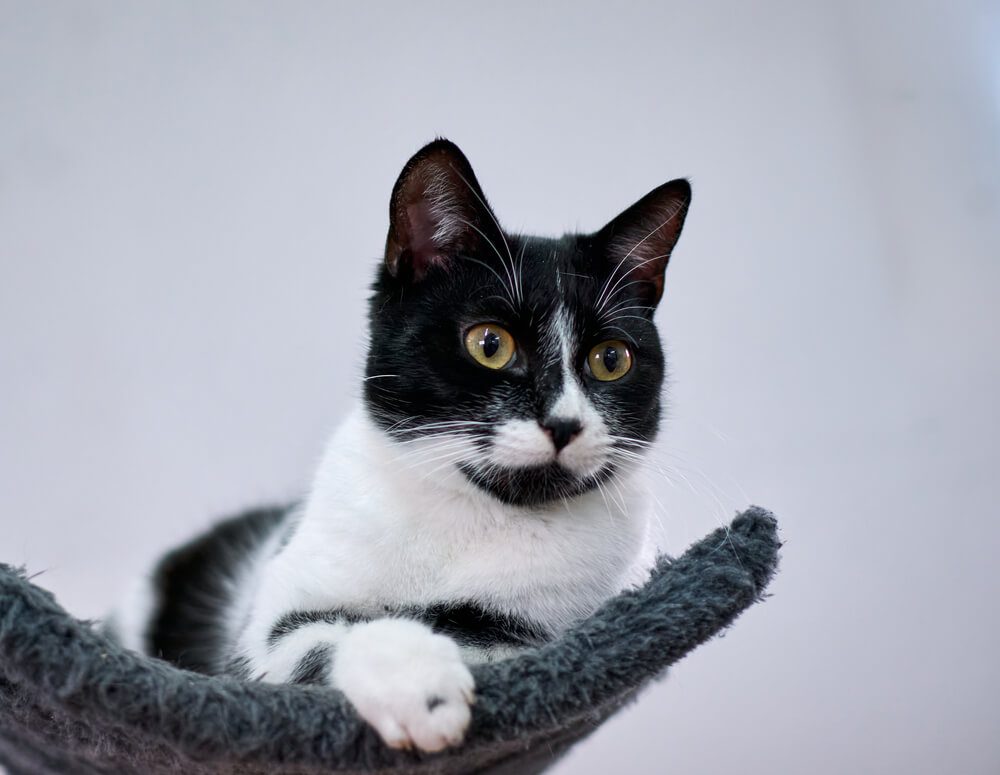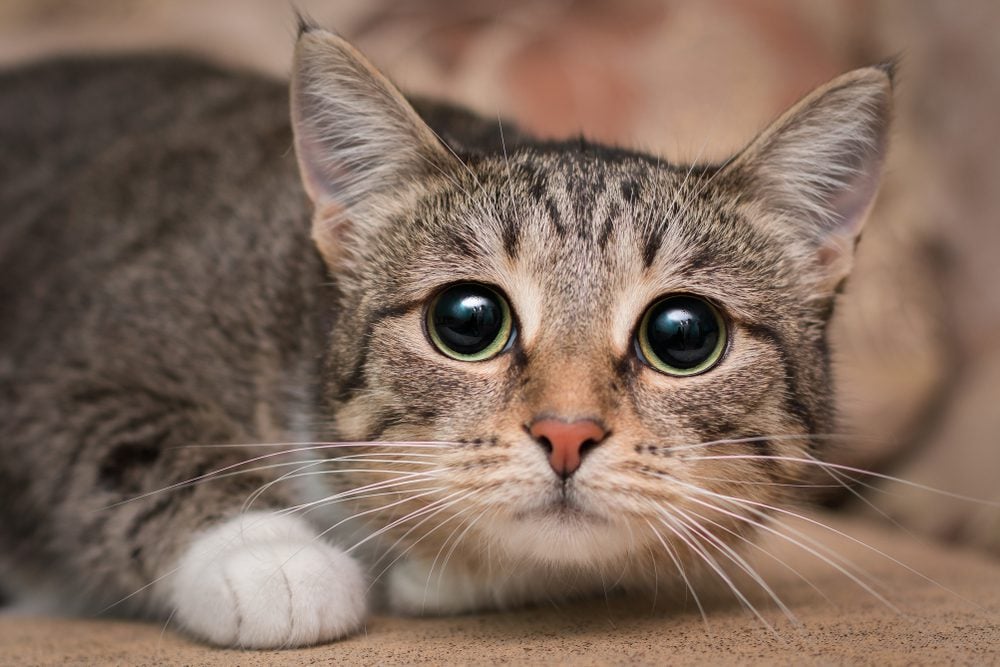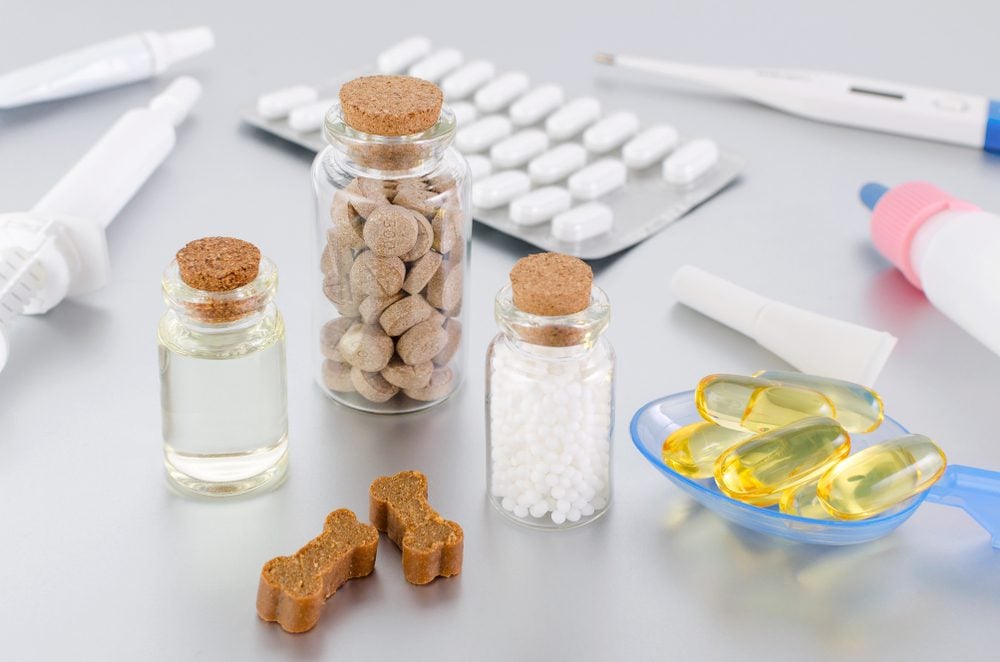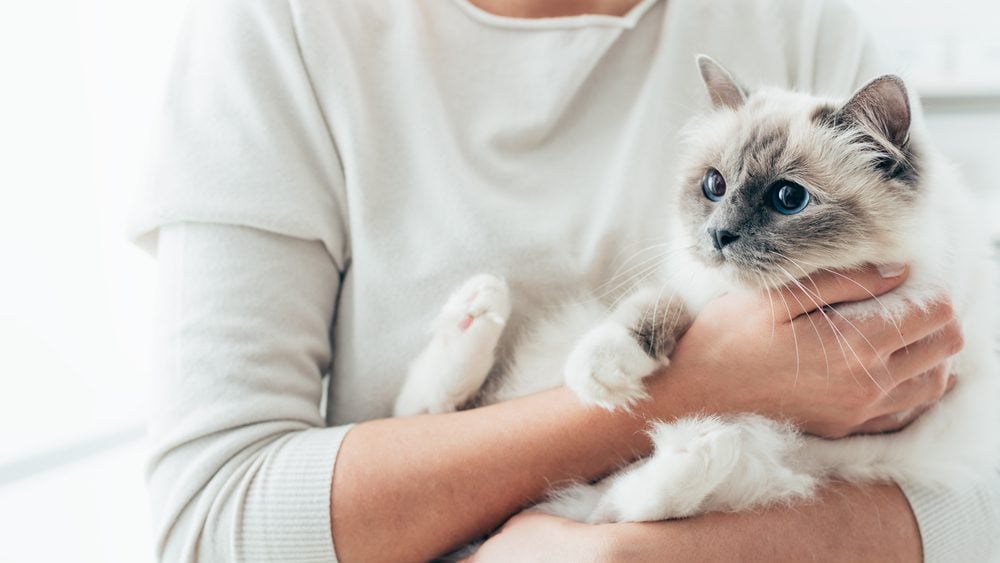Human Probiotics for Cats

Table of Contents
Every pet owner wants to ensure that their cat maintains a healthy digestive system, and one of the best ways to ensure that is by adding probiotics for cats into their diet. There has been a lot of research indicating the benefits of using probiotics for cats.
According to ongoing research, your kitty shares the same internal system as a human, so its digestive health correlates with its immune system.
A set of good probiotics are one of the best treatments for cats and are also a healthier option. Before starting off probiotics for your cat, you should consider a few things – like are human probiotics good for cats?
It is also best to consult a vet before adding these supplements to your cat’s health regimen. If you want to know more about the benefits of probiotics and gain better insight on human probiotics for cats so you can choose the best ones, we have mentioned everything you need to know about probiotics for cats.
What Are Probiotics?

Probiotics come in the form of oral capsules. They contain healthy bacteria to provide a healthy digestive tract in both cats and people. As pet parents, feline probiotics are a blessing for your cat. They will help regulate your kitten’s digestive system, ensuring a healthier lifestyle for them.
You may already be aware of the different health problems and diseases that your cat could be prone to. These diseases put your cat in a very life-threatening position, but with the help of probiotics, cats can avoid different diseases and illnesses.
Probiotics also enhance your kitty’s gastrointestinal health. Feline probiotics can do a lot, and you will find out as you read. Read on to gain a better insight into the common health problems in cats.
Are all Probiotics Created the Same?
All probiotics are not created the same. According to many clinicians, each probiotic formula caters to a specific condition. Probiotics include different strains that contribute to various health benefits.
Some probiotics containing different strains may have the same species and still have a different effect. We still need much more research on the different probiotic strains, but many studies suggest that a specific strain might help prevent and treat a particular disease. At the same time, it may prompt your immune function as well.
According to level A evidence, patients who consume probiotics containing the Saccharomyces boulardiii and the Lactobacillus acidophilus species can avoid diarrhea associated with antibiotics, and also treat Clostridium diicile infections.
There is no evidence showing its effectiveness on cats, but cat diarrhea is very common, and vets usually prescribe antibiotics for them. Hence, this supplement may help your cat avoid conditions like diarrhea.
One of the main reasons probiotics for cats aren’t made the same is that the doses differ. Your cat needs to take a certain number of doses to achieve the desired results.
The level of CFUs in probiotics measures the number of microorganisms in them. Every probiotic formula contains a different species and strain. Hence, it is a good idea to research the product first before feeding it to your furry friend.
Candace Sandal, a professor at the Wilmington University, gave much emphasis on how important evaluating each probiotic product on a case-by-case basis is important for it to target a certain health condition at the American Association of Nurse Practitioners meeting 2014.
Each manufacturer develops a different kind of probiotic. Therefore, you must always buy probiotics for your cats from a reputable probiotic manufacturer or company. At the same time, review the evidence behind the specific product.
Can I Give My Cat Human Grade Probiotic?
There is not much research that directs a benefit or non-beneficial link between human probiotics and cats, even though kittens share the same digestive system as humans. So a simple and safe answer would be, no. You shouldn’t give your cat human probiotics.
According to a VMD veterinarian, one of the main reasons for keeping your feline away from human-grade ingredients is because microflora is different in the small and large intestine compared to that of humans. Some probiotics might consist of ingredients that are dangerous for cats, making it wrong for cat parents to assume that human probiotics are safe and will work for all cats.
Possible Side Effects of Cat Probiotics

While probiotics benefit your cats’ GI system, there are a few side effects of giving your furry one certain probiotics. It’s important to understand all the side effects before adding a probiotic supplement to your cat’s healthy regimen. Below, we’ve mentioned a few side effects of probiotics that your cat might face, explaining why you may want to avoid them or research thoroughly before feeding it to them.
Abdominal Discomfort
Abdominal discomfort is one of the main side-effects of giving probiotics to your cat. This side-effect is very common as probiotics could increase intestinal gas production in your cat, and restrict bowel movements.
Some animals, including both cats and dogs, may experience loose stools and constipation when you initially start them off with the supplements. You should keep track of their stool consistency at this point to identify any weird changes.
Due to an increase in diarrhea, your cat’s energy levels may drastically drop. This gradually resolves after you adjust their dose of probiotic supplements, and their body starts getting used to it.
Other than constipation, your cat may also experience loose stools in the first few days, so you may have to prepare yourself to see a lot of poop stool. This is more common when you give your cat a high dose of probiotics containing multiple strains.
The best way to tackle this, and related problems, would be to reduce the dosage. Then, you can shift back to the original dosage once the side effects subside and your cat’s condition improves.
Poor Quality Standards
Due to poor quality standards in the production centers for different cat and dog probiotic products, your cat is susceptible to various side effects, such as vomiting. These make it all the more unsafe for your furry little fellow.
Many probiotics don’t go through a safe standardized procedure, making them unsafe for kittens. According to a few studies, many pet probiotics lack quality standards.
This is why you must carefully choose a probiotic for your cat, preferably by a reputable manufacturer and recommended by your vet. Evidence from a recent study indicates that many manufactures can mislead buyers by touting beneficial clinical uses of a product. Meanwhile, the product contains fewer probiotic organisms than advertised. These products were unfortunately listed on the label.
On the whole, it is very rare that cats experience any side effects. According to different case reports, human patients are likely to experience major side effects that can cause them to require hospitalization. However, further research is needed to understand side effects in veterinary patients like cats.
Best Probiotics for Cats

As the demand for pet probiotics has dramatically increased, pet lovers are swiping probiotic products off drug stores and supermarket shelves. Consequently, the supply of these products has increased.
More and more probiotic manufacturers have entered the market to meet the demands of this growing industry. Unfortunately, the increase in supply has led to a major concern in the quality and safety regulations behind cat probiotics.
This makes it tricky for pet owners when buying a safe product for their pets. Due to this, you must always consult your veterinarian before purchasing a certain supplement product for your kitten. Because so many probiotics are available, here are a few traits that you must keep a lookout for. They can help you choose the best option for your pet.
Must have Various Bacterial Strains
The pet probiotic you choose must contain different bacterial strains, as having an individual strain will only be effective when the bacteria works along with other species as well.
If you feed your kittens probiotics that cater to one stain, you will be filling their gut with Lactobacillus acidophilus, which would suppress the immune system instead of working to help the GI tract. This makes your feline friend prone to different infections. You can identify the different bacterial strains on the ingredient list of the product.
Go for Probiotics in Enteric-Coated Capsules
Many probiotics contain stomach acid and those that come with this defeat the whole purpose of the bacteria getting into the gut microbiome of your dog or cat. Stomach acid usually kills all the bacteria.
Hence, you must opt for Enteric Coating capsules, as these prevent the stomach acid from destroying the probiotic strains. Stomach acid is bad for pets such as dogs and cats as their stomachs are more acidic compared to people.
Should Have 100 Million CFU
CFU are the colony-forming units that help enhance their beneficial effect on the consumer. Probiotics contain different formulas, so for it to be effective, always check the bottle and its CFU rating.
The Takeaway

Being a cat owner is one of the most beautiful experiences, yet stressful too. You have to treat your cat like a child, and this means you have to do your part in ensuring they are healthy.
Probiotics are one of the best ways to ensure a healthy gut bacteria system for your cat and prevent them from many diseases like IBD and pancreatitis. With the help of this article you hopefully have a better view on human probiotics for cats, and the benefits of probiotics, knowing if you should or shouldn’t go for it.
Frequently Asked Questions
Can Pet’s Take Human Probiotics?
No, you shouldn’t give your cat human probiotics as there is still more research needed on the effects of these on pets. People and cats have the same digestive system which should make is reasonable to give it to pets too, but to be on the safe side, you should avoid it, and stick to animal supplements, and pet food.
Can a Cat Take Probiotics?
Yes, probiotics are very effective when it comes to regulating a cat’s digestive tract system and their overall health. High-quality probiotics bring out major health benefits in cats.
Can Probiotics make a cat sick?
There are few cat probiotics that come with side effects such as diarrhea and vomiting. Cat allergies are also very common in many cats who take probiotics, and they become intolerable to them. These side-effects are very rare but possible.
Do probiotic strains matter when buying for my Cat?
Bacterial strains in probiotics have different benefits and functions. Sometimes one strain wouldn’t be enough to showcase the benefits in your cat’s gut health; hence you must opt for one with multiple strains.
















